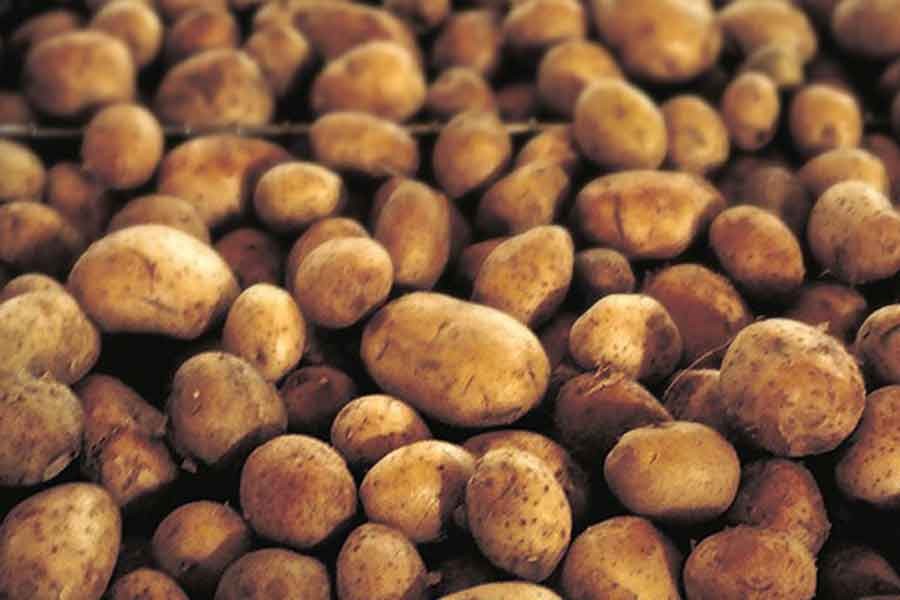Growing or dealing in potato in recent years has become really difficult. In fact, the problem surfaces when the harvest of new potatoes starts every year.
The consumers, naturally, prefer newly harvested fresh potatoes to the old ones that are preserved in cold storages. Fresh potatoes taste better and consumers would never want to miss that.
Markets do experience a glut of potatoes created by old stocks and newly harvested crop, leading to a fall in the prices of the former in view of their reduced demand from consumers.
The main brunt of over-supply is borne by holders of old stock of potatoes. What is happening with the old stock these days is a pointer to that fact.
There are reports galore these days on the plight of traders who have stored their potatoes in cold storages with an expectation of higher return during the off-season. The owners of cold storages are also facing troubles for non-lifting of potatoes by traders. Since the demand for old potatoes from consumers has declined remarkably following the arrival of new potatoes in the market, the prices of the former have gone down sharply. As a result traders are not lifting old potatoes from cold storages, for the sale proceeds would not be even enough to settle the rent of the storage facilities.
The cold storage owners are also left with no option other than getting rid of old stocks to make room for the new crops. So, under the circumstances, they are being forced to dispose of old stocks at a throwaway price -- a sack of potatoes (84 kgs) is being sold at Tk 180 as against their total procurement cost of more than Tk 1000. The owners of dairy farms are now finding it more profitable to treat their livestock with potatoes than any other feed.
A vernacular daily published a report along with pictures where the owner of a cold storage was seen giving away sacks of old potatoes to villagers in exchange for liquid milk.
Even growers of potatoes are reportedly not getting due prices for their new crop this year.
But why do this problem surface time and again?
Farmers are often termed 'best economists' as far as selection of crops is concerned. But that, apparently, is not always true. The majority of farmers are illiterate and they don't have sufficient information about issues involving marketing of their produce.
The relevant government officials, the field-level agricultural extension officials in particular, unless approached, hardly pass information to the farming community. Most officials remain desk-bound and do not offer enough information to farmers about crop rotation and marketability of agricultural products.
It is generally observed that growers avoid cultivation of a particular crop in the next season if he or she gets insufficient return from that in a particular year. Such deliberate skipping of cultivation does often leads to better return for the growers who continue cultivating the same.
Marketing of primary agricultural goods remains a problem in the country. This is particularly true for growers who are deprived of their due, in most cases. The growers get a small fraction of the prices that the consumers pay for most farm produces and the rest is eaten up by a host of middlemen operating at various levels.
There is no denying that consumption of potatoes has gone up in recent years. The food processing industries have been consuming a sufficient volume of the item. Yet the production of the crop is more than the local demand. The government should explore possibilities of exporting potatoes. However, that would be possible only when farmers are able to meet international standard of potato production.


